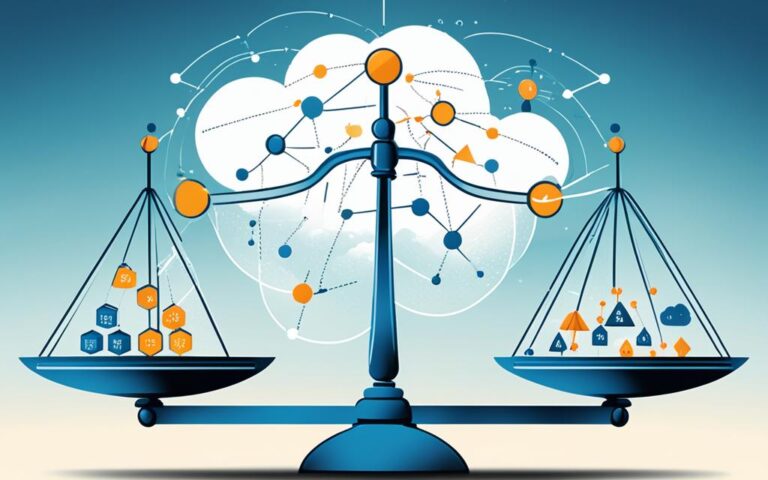Challenging the Norm: Oppugning Programming Paradigms
In the ever-evolving world of coding, where innovation and creativity are key, it’s not uncommon to find developers who are challenging the status quo. They are the rebels—the ones who dare to question the norms and rethink the traditional coding paradigms. Why should we confine ourselves to established practices when there is so much potential to reinvent the way we approach programming?
Picture this: a developer sitting at their desk, surrounded by lines of code, pondering the possibilities of breaking free from the shackles of convention. They are driven by the desire to redefine the boundaries, to push the limits of what is considered the norm.
What if we could challenge programming paradigms and explore new ways of thinking? What if we could rethink coding norms and unleash a wave of innovation in software development? The future of coding lies in the hands of those who are willing to question, experiment, and take risks.
The Shift from Old to New Legal Realism
The concept of challenging programming paradigms is not limited to the field of coding itself, but can also be seen in other disciplines. One such discipline is the field of law, where scholars have been challenging the traditional approach to legal scholarship known as neo-classical law and economics. The emergence of new legal realism has prompted a re-evaluation of the assumptions and methods used in legal scholarship, with a focus on the individual, the state, and judging.
While neo-classical law and economics dominated legal scholarship for many years, the rise of new legal realism signals a paradigm shift. This new approach seeks to understand the law from a more interdisciplinary perspective, incorporating insights from behavioral economics, anthropology, sociology, and political science. By examining the complex interplay between law, society, and power dynamics, new legal realism aims to offer a more nuanced and comprehensive understanding of legal systems.
One of the key features of new legal realism is its focus on the individual and their lived experiences. Unlike neo-classical law and economics, which tends to view individuals as rational actors driven solely by self-interest, new legal realism acknowledges the influence of social, cultural, and psychological factors on legal decision-making. By embracing a more holistic view of human behavior, new legal realists strive to develop legal theories and frameworks that are more reflective of real-world complexities.
Another important aspect of new legal realism is its emphasis on the state and its role in shaping law and legal institutions. While neo-classical law and economics often places the market at the center of analysis, new legal realism recognizes the fundamental significance of the state in regulating and governing society. This shift in perspective opens up new avenues for examining the power dynamics between the state, individuals, and various social groups within the legal system.
Forms of New-Legal-Realist Scholarship
New legal realism encompasses a range of theoretical and methodological approaches within legal scholarship. Some notable forms of new-legal-realist scholarship include:
- Behavioral Economics: This branch of new legal realism draws on insights from psychology and economics to understand how individuals make decisions, negotiate, and interact within the legal system. By incorporating concepts such as bounded rationality and cognitive biases, behavioral economics offers a more realistic view of human behavior in legal contexts.
- Legal Empiricism: Legal empiricism seeks to gather empirical evidence and data to inform legal theories and analyses. Through rigorous empirical research, legal empiricists aim to challenge existing legal doctrines and uncover the real-world implications of legal rules.
- Comparative Institutionalism: This approach focuses on analyzing the various institutions that shape the legal system, such as courts, legislatures, and regulatory bodies. By comparing and contrasting different institutional arrangements, comparative institutionalists aim to understand how legal systems function and how they can be improved to better serve societal needs.
These various forms of new-legal-realist scholarship contribute to a more comprehensive and dynamic understanding of law and legal institutions, challenging the traditional boundaries of legal scholarship.
The table below provides a summary of the key differences between neo-classical law and economics and new legal realism:
| Neo-classical Law and Economics | New Legal Realism |
|---|---|
| Focus on rational actors driven by self-interest | Recognition of social, cultural, and psychological factors in legal decision-making |
| Market-centered analysis | Recognition of the state’s role in shaping law and legal institutions |
| Emphasis on legal rules and doctrines | Interdisciplinary approach drawing on insights from psychology, economics, sociology, and political science |
The shift from old to new legal realism represents an exciting development in the field of legal scholarship. By challenging established norms and embracing interdisciplinary perspectives, new legal realism has the potential to enrich our understanding of law and contribute to more inclusive and just legal systems.
The Impact of Corruption on Economic Development in China
Corruption is like a dark cloud that looms over countries, hindering their economic development and stability. China, known for its rapid economic growth, has also been grappling with the detrimental effects of corruption. Scholars and policymakers alike have delved into the intricate relationship between corruption and economic development in China, igniting intense debates and shedding light on the complexities involved.
While some argue that corruption can fuel economic dynamism by lubricating business transactions and expediting processes, others contend that it acts as a significant roadblock to development and undermines the rule of law. The empirical evidence and historical context provide valuable insights into the multifaceted dynamics at play.
“Corruption corrodes the very fabric of society, eroding trust, distorting markets, and diverting resources away from essential public services.”
– Anti-Corruption Expert
China’s economic transformation over the years has been remarkable, but corruption continues to be a formidable challenge. To better understand the impact of corruption on economic development in China, let’s explore some key areas affected by this issue:
Growth and Investment
Corruption can create an unfavorable investment climate, discouraging both domestic and foreign investors. It breeds uncertainty, increases business costs, and introduces unfair advantages for those willing to engage in corrupt practices. Companies may choose to invest in countries with lower corruption levels, hampering China’s overall economic growth.
Inequality and Poverty
Corruption exacerbates income inequality and perpetuates poverty. When resources intended for public welfare are siphoned off through corrupt practices, it widens the gap between the rich and the poor. The most vulnerable segments of society bear the brunt of these consequences, hindering social and economic progress.
Governance and Rule of Law
Corruption erodes governance structures and undermines the rule of law. When officials engage in corrupt practices without accountability, it weakens institutions and diminishes public trust. This, in turn, hinders effective policymaking, obstructs transparent decision-making processes, and compromises the overall governance of the country.
International Perception and Reputation
Perceptions of corruption can have far-reaching consequences for a country’s international reputation and attractiveness to foreign investors. Countries with high corruption levels may face skepticism and reluctance from the international community, which can negatively impact trade, foreign direct investment, and overall economic cooperation.
The table below showcases some key statistics related to corruption and economic development in China:
| Indicator | Corruption | Economic Development |
|---|---|---|
| Graft Perceptions Index | 72/100 | – |
| GDP Growth Rate (2020) | – | 2.3% |
| Foreign Direct Investment (FDI) | – | $144.37 billion |
| Income Inequality Index | – | 0.465 |
All these factors contribute to a complex landscape where corruption and economic development intersect. It is crucial for China to address corruption through robust anti-corruption measures, transparency initiatives, and strengthened institutions. By tackling corruption head-on, China can pave the way for sustainable and equitable economic development.
Next, we will conclude this article by summarizing the key insights from the discourse on challenging programming paradigms, exploring new legal realism, and examining the impact of corruption on economic development. Stay tuned!
Conclusion
In today’s rapidly evolving world, challenging programming paradigms is not limited to the field of coding alone. This movement reflects a broader trend of questioning established norms and practices across various domains, including law and economics. As we witness the rise of new legal realism, alternative approaches to legal scholarship are gaining traction. By embracing this paradigm shift, we open ourselves up to innovative solutions and fresh perspectives that have the potential to redefine the future of coding, law, and beyond.
Examining the complex relationship between corruption and economic development in China further emphasizes the need to challenge ingrained paradigms. In a country experiencing rapid growth, addressing corruption poses significant challenges. The discourse surrounding this issue calls for a nuanced understanding of its impact on economic progress and the rule of law. By critically analyzing empirical evidence and historical context, we can navigate the complexities and explore effective strategies for sustainable economic development.
Overall, embracing the challenge of rethinking established paradigms brings numerous opportunities for growth and advancement in programming, legal scholarship, and economic development. It is by continuously questioning existing norms and exploring alternative avenues that we can uncover innovative solutions to pressing issues. As the global landscape continues to evolve, let us dare to question, reimagine, and set the stage for a future marked by progress, ingenuity, and paradigm-shifting achievements.
FAQ
What is the movement to challenge programming paradigms?
The movement to challenge programming paradigms is a growing trend in the programming community that aims to question and disrupt the established norms and practices in coding in order to rethink and reinvent how we approach programming.
What disciplines outside of coding also challenge traditional paradigms?
One discipline that challenges traditional paradigms is the field of law, where scholars have been challenging the traditional approach to legal scholarship known as neo-classical law and economics, with the emergence of new legal realism.
What is new legal realism?
New legal realism is an alternative approach to legal scholarship that prompts a re-evaluation of the assumptions and methods used in legal scholarship, focusing on the individual, the state, and judging.
How does corruption impact economic development in China?
Corruption is a pervasive issue in China that affects economic development. The relationship between corruption and economic development in China is complex, with arguments for both its fueling of economic dynamism and its hindrance to development and the rule of law.
Why is it important to challenge established paradigms?
Challenging established paradigms and norms can lead to innovative solutions and new perspectives that contribute to the advancement of fields like programming, law, and economics. It is crucial to critically examine existing paradigms and explore new avenues for growth and development.










